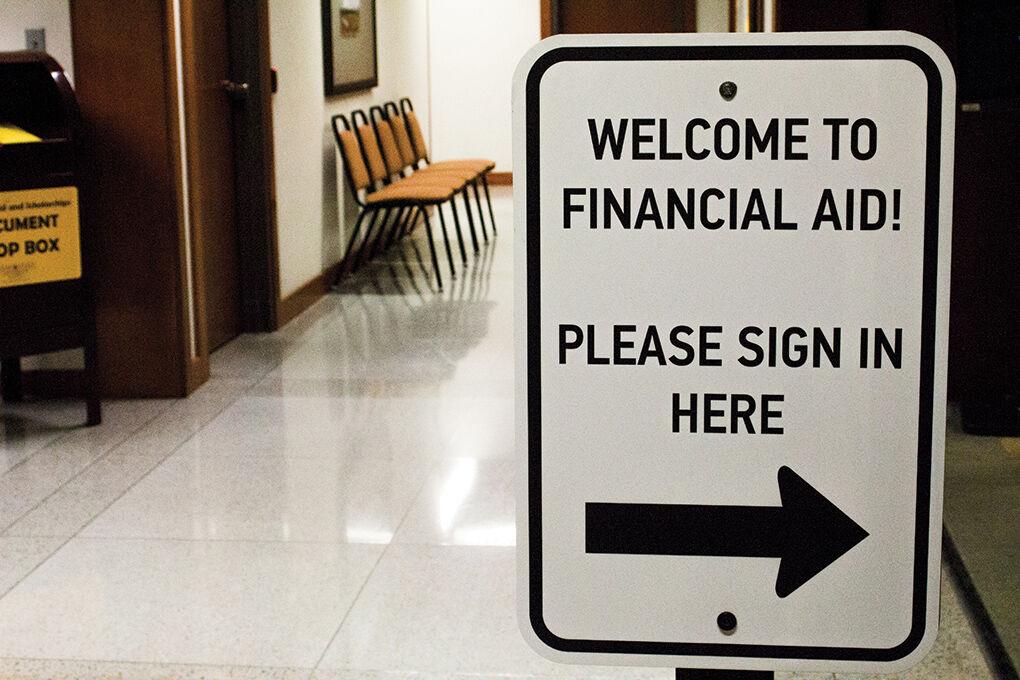U.S. Rep. Lloyd Doggett (D-TX) introduced a bill to simplify the Free Application for Federal Student Aid, or FAFSA, which could affect nearly 70 percent of the Texas State students who receive financial assistance.
The proposed bill—the Equitable Student Aid Access Act—aims to diminish complications for students who fill out the financial form.
“Too many students find the FAFSA too complicated to complete, so they lose access to available financial aid, causing many to abandon college education,” Doggett said in a press release. “Students who failed to complete the FAFSA could have received millions in federal assistance.”
Every year, students in need of financial services can apply to receive federal grants, loans and/or work-study funds for the fiscal year to help get through college. In 2016, Texas State had 27,074 of 38,849 students utilize FAFSA, according to data retrieved from the Office of Financial Aid and Scholarships.
The bill is composed of several new features such as making FAFSA available earlier in the year. Another feature calls to expand the program’s eligibility, allowing more students to receive federal grant money to pay for higher education in a timely manner.
The act would allow access to FAFSA forms in October instead of January. Applicants can submit tax data from the past two previous years. Filers who begin the process in October can use IRS documents already verified and completed.
With the filing opportunities the bill provides, students would no longer have to make as many estimates on their FAFSA forum. Estimating can result in selection for verification, which can slow down the process. This, among others, is a problem students experience often.
Dr. Christopher Murr, director of Financial Aid and Scholarships, encourages students to utilize the new FAFSA services the bill provides.
“We want our students to complete the FASFA in October, especially if they have a financial need,” Murr said. “That allows us to maximize the help they can get.”
Another feature of the bill would be to revive the Data Retrieval Tool. This function allows students to transfer required IRS tax information to their applications automatically.
The DRT was taken down March 3 with no warning. This happened just two weeks before FAFSA was due for aid in Texas. According to a joint statement made from the IRS and ED, the tool was removed “to protect sensitive taxpayer data.” Doggett worked with both the IRS and the Department of Education to ensure students would be able to use the DRT.
The U.S. Department of Education recognized San Antonio and Austin as two of the top five cities in the nation to increase FAFSA completion rates. More than half of San Antonio students graduating high school now apply for federal financial aid to help assist with the high costs of college.
Lastly, the bill would assist families who make less than $30,000 a year. Students enrolled in a federal means-tested benefit program would be able to skip questions pertaining to financial assets.
These programs include the Temporary Assistance for Needy Families, Supplemental Nutrition Assistance Program, the Special Supplemental Nutrition Program for Women, Infants and Children and Supplementary Security Income.
“Families who receive means-tested benefits should not have to prove again and again that they are poor,” said Executive Director Kim Cook in a press release.
For the students who qualify, the maximum grant would entail $5,815 for the student’s tuition cost. Texas State Students received over $51,690,000 million in Pell Grants in 2016.
“If you are willing to work to get yourself to college, I am willing to work to help get you through without insurmountable debt,” Doggett said on his website.
Doggett filed the bill April 6 with over 63 co-sponsors. Following the two-week adjournment of the United States congress, the bill will take necessary steps and could potentially be signed into law.
Congress introduced bill to simplify FAFSA
April 14, 2017
Joshua Castellano-Davila, Staff
Photo by: Joshua Castellano-Davila
Donate to The University Star
Your donation will support the student journalists of Texas State University. Your contribution will allow us to purchase equipment and cover our annual website hosting costs.



















